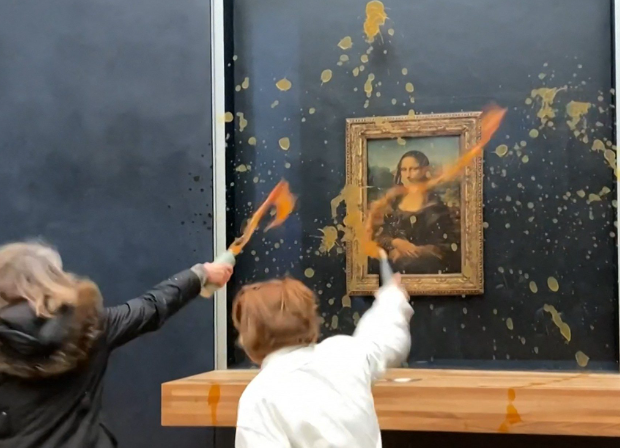
Protest is a fundamental right in democracies, serving as a powerful means to express dissent against the government. However, when this right is exercised in an arbitrary and destructive manner, it deserves strong condemnation. A recent case in france exemplifies such misuse of protest where environmental activists expressed their concerns about widespread issues faced by farmers by vandalizing the world-famous Mona Lisa painting at the Louvre Museum in Paris.

The activists, angered by the perceived inadequacies in the agricultural sector and the loss of lives among farmers, chose an inappropriate method to voice their concerns. Pouring soup on the painted glass panel protecting the Mona Lisa, a national treasure, not only defaced a cultural icon but also disrupted the peace in the area. The two environmental activists involved in the incident were subsequently arrested.
Their demands include the abolition of diesel fuel taxes for vehicles and other measures to address the challenges faced by the agricultural sector. While their cause is legitimate, the method of damaging national property is widely criticized. It is believed that the activists resorted to such extreme measures to attract international attention to their protest, aiming to increase pressure on the government by making the world aware of the farmers' problems in their country.
While the activists' intentions may be rooted in a desire to highlight the plight of farmers, the manner in which they chose to convey their message has sparked controversy and condemnation, emphasizing the need for responsible and constructive avenues of protest.




 click and follow Indiaherald WhatsApp channel
click and follow Indiaherald WhatsApp channel